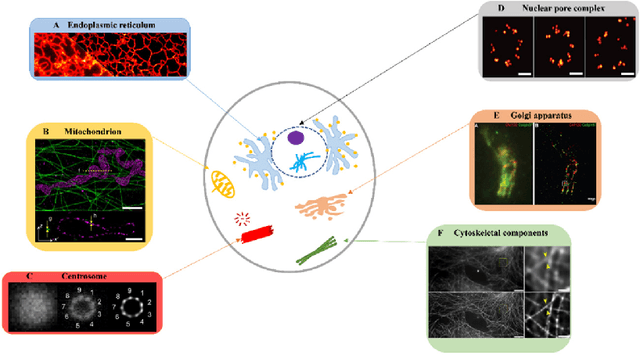Advancing biological super-resolution microscopy through deep learning: a brief review
Paper and Code
Jun 24, 2021



Super-resolution microscopy overcomes the diffraction limit of conventional light microscopy in spatial resolution. By providing novel spatial or spatio-temporal information on biological processes at nanometer resolution with molecular specificity, it plays an increasingly important role in life sciences. However, its technical limitations require trade-offs to balance its spatial resolution, temporal resolution, and light exposure of samples. Recently, deep learning has achieved breakthrough performance in many image processing and computer vision tasks. It has also shown great promise in pushing the performance envelope of super-resolution microscopy. In this brief Review, we survey recent advances in using deep learning to enhance performance of super-resolution microscopy. We focus primarily on how deep learning ad-vances reconstruction of super-resolution images. Related key technical challenges are discussed. Despite the challenges, deep learning is set to play an indispensable and transformative role in the development of super-resolution microscopy. We conclude with an outlook on how deep learning could shape the future of this new generation of light microscopy technology.
 Add to Chrome
Add to Chrome Add to Firefox
Add to Firefox Add to Edge
Add to Edge